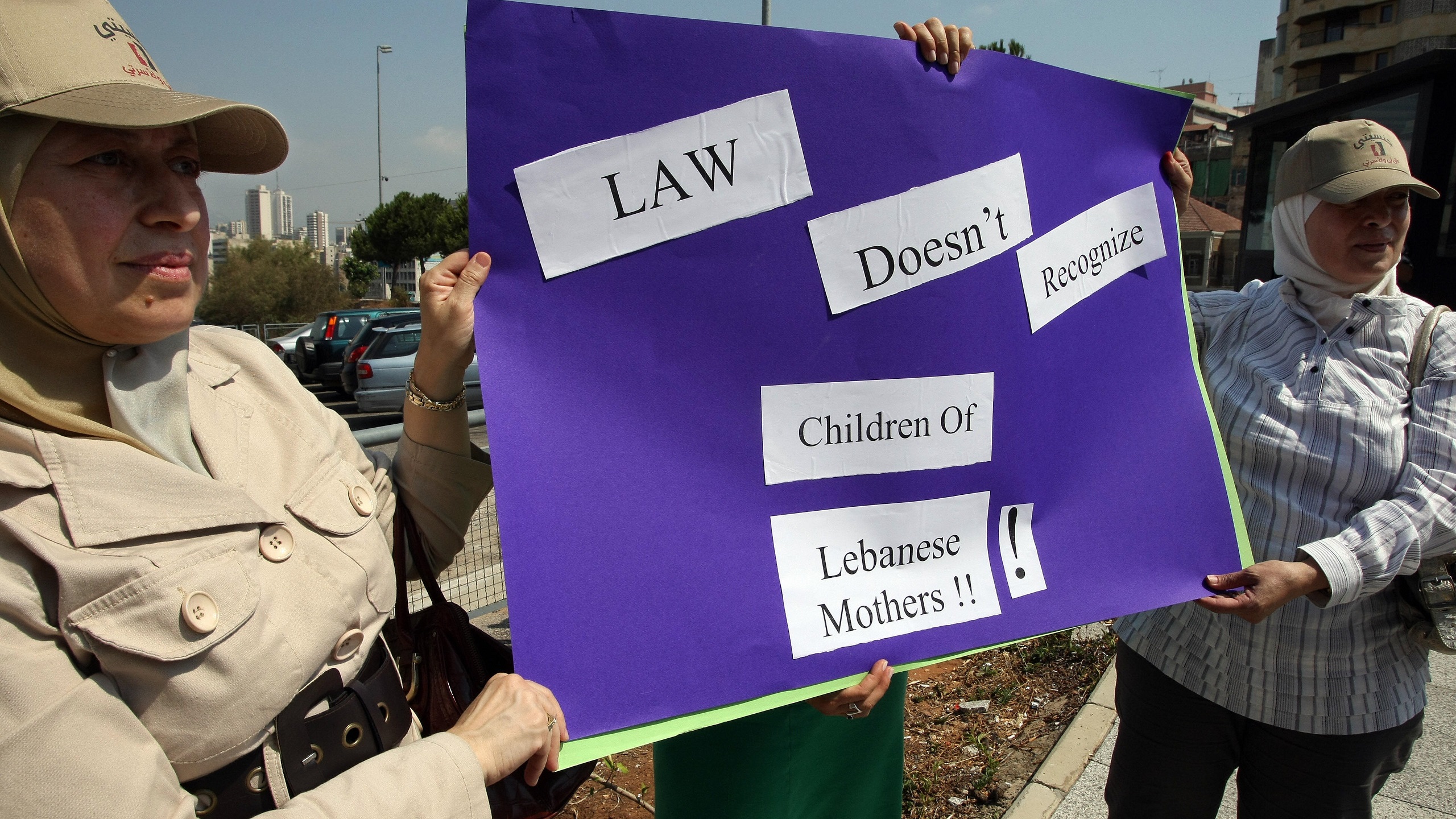Lebanese, but Officially Stateless
Lebanon is one of 25 countries that deny women the right to pass their nationality on to their children, resulting in an estimated 100,000 stateless Lebanese children born to non-Lebanese fathers
[Beirut] Amanda Dufour was born in Lebanon to a Lebanese mother, and she lived in Lebanon until the age of 18. Officially, though, she isn’t Lebanese. That’s because Dufour’s father isn’t Lebanese, and Lebanon is one of 25 countries that deny women the right to pass on their nationality to their children.
In Lebanon, they consider me a foreigner because my father is a foreigner. This is how they see women. I have always felt on the sidelines in some way.
When Dufour’s mother married a Swiss national, she lost the right to pass on her Lebanese citizenship to any children from that marriage. She was also unable to transfer citizenship to her husband. “In Lebanon, they consider me a foreigner because my father is a foreigner,” Dufour told The Media Line. “This is how they see women. I have always felt on the sidelines in some way.”
No official data exist on the number of stateless people in Lebanon, but the Individual Initiative Association for Human Rights, a Lebanese non-profit focused on women’s rights, estimates that there are about 100,000 such people in Lebanon. These stateless people, the majority of whom are born to a Lebanese mother and a foreign father, have no documentation classifying them as Lebanese and are officially not citizens.
“Growing up, I always knew that once I would finish high school it would be very hard for me to work in Lebanon as a foreigner,” Dufour, who now lives in England as a UK citizen, said. “I always knew that I would have to leave because I wouldn’t be able to find a job.”
In 2020, Dufour published a book of poetry exploring her identity, titled Local Foreigner. “We dream of home being where we come from, but the reality is that all too often that place doesn’t exist,” she wrote in that book.

Living in Lebanon without Lebanese nationality is a road full of obstacles, Lina Abou-Habib, director of the Asfari Institute for Civil Society and Citizenship at the American University of Beirut, told The Media Line. People like Dufour cannot work in any profession requiring union membership, such as medicine or law. They encounter difficulties when trying to access education and healthcare, and they are legally unable to inherit or own property.
We won’t see any changes happening with this regime. It is anti-rights, anti-women, anti-progress, and anti-education.
“We won’t see any changes happening with this regime. It is anti-rights, anti-women, anti-progress, and anti-education,” Abou-Habib said. She has been involved in campaigns to allow Arab women to pass on their citizenship for 20 years, a period during which she witnessed Algeria, Egypt, and Morocco amend their discriminatory citizenship laws.
“There are still countries like Lebanon where there is no effort to at least ease the burden on these women and their families in terms of basic rights,” she said.
She explained that stateless people like Dufour face a variety of hardships. “It’s not just the financial cost,” she said, “but the emotional cost of being treated as foreigners and being victims of racism, ostracism, and lack of opportunity.”
Lebanon’s nationality law dates back to its history as a French colony. France imposed the law, which was similar to the one in France at the time, in 1925. Almost a century later, Lebanon has maintained the law, arguing that a looser path to citizenship would disrupt Lebanon’s demographic balance. Palestinian refugees living in Lebanon since the establishment of Israel in 1948 and recently arrived Syrian asylum seekers are some of the groups that Lebanon is trying to prevent from gaining citizenship.
Lebanon’s demography is central to its political system. Eighteen religious sects coexist in Lebanon, each represented in the state’s constitution and in its institutions. For example, the president of Lebanon is required to be a Maronite Christian, the prime minister is required to be Sunni, and the speaker of the house is required to be Shiite.
That same sectarianism prevents the creation of a unified civil code to replace the 15 different laws on personal status—issues such as inheritance, marriage, and custody—regulated by separate religious courts. In the absence of a unified civil code, women lack many basic rights, such as the ability to pass on citizenship to their children. Lebanese men married to foreign women are entitled to pass on their citizenship.
“It’s one way for patriarchal regimes to sanction women who depart from what is expected of them,” Abou-Habib said. “Somehow, marrying outside their tribe is an act of rebellion that deserves to be punished by withdrawing the right to transmit their nationality.”
Campaigns to improve the rights of stateless people in Lebanon, such as the My Nationality, My Dignity campaign launched by the Individual Initiative Association for Human Rights, have achieved some success. Stateless people living in Lebanon can now renew their residence permit once every three years instead of once annually, and the renewal no longer carries a fee. They also have access to public education.
But there is still a long way to go, in Lebanon and in the wider region. The World Economic Forum (WEF) ranked Lebanon 119th out of 156 in terms of gender equality in its 2022 Global Report on the Gender Gap. The WEF also found that gender-discriminatory nationality laws are concentrated most highly in the Middle East and North Africa, with half of the 25 countries that deny women the same rights as men to pass on their nationality located in that region.
Once a taboo subject, the inability of Lebanese women married to foreign men to pass on their citizenship is now openly discussed in the media. Regardless, Abou-Habib doubts that the problem will be solved anytime soon. “All successive governments have been equally horrible in their position on this issue,” she said. “They have not hesitated to make racist or sexist statements. It is up to us to remain visible and vocal until this regime is gone.”


